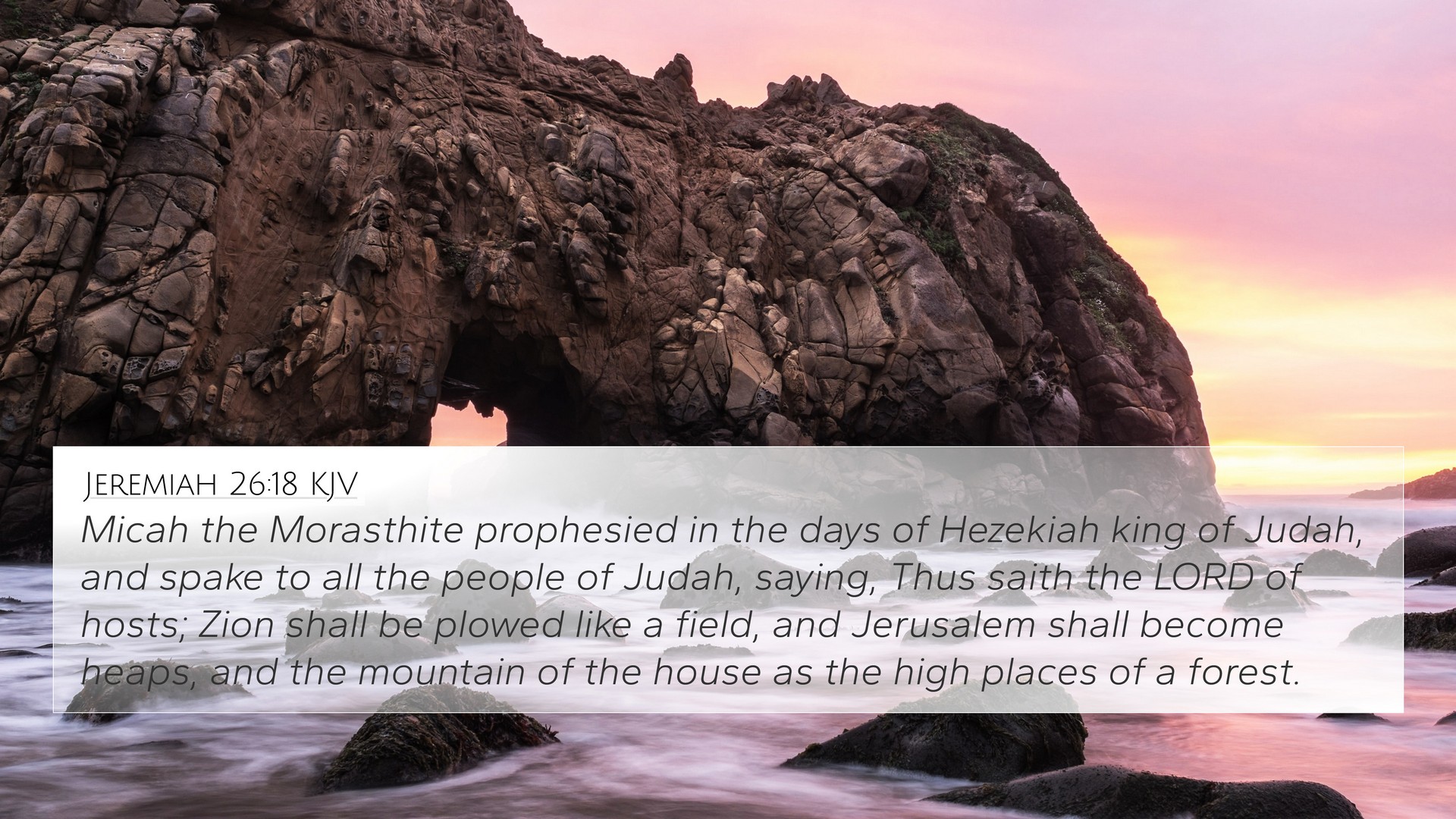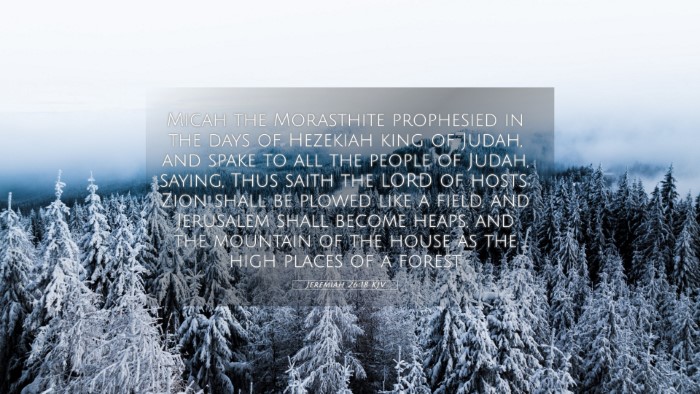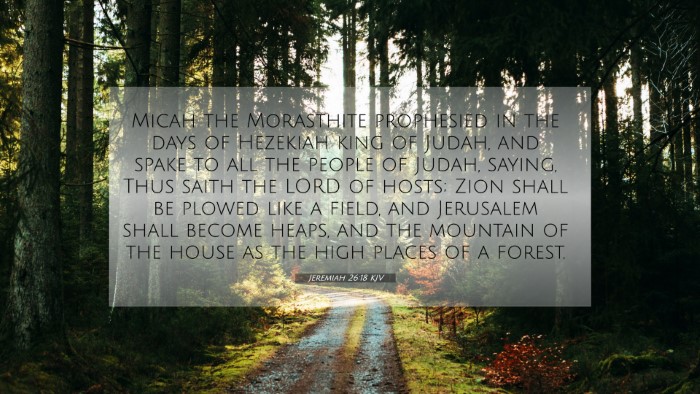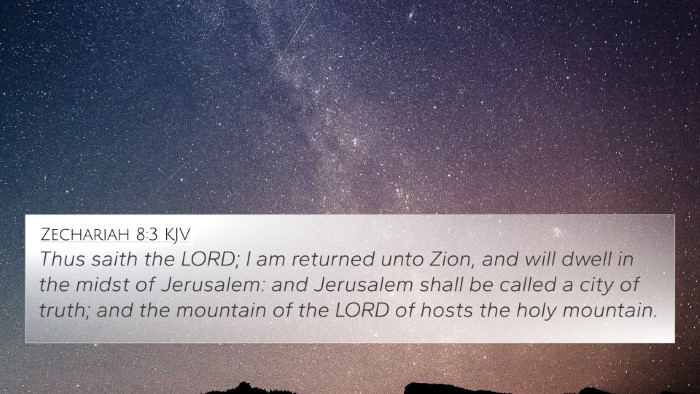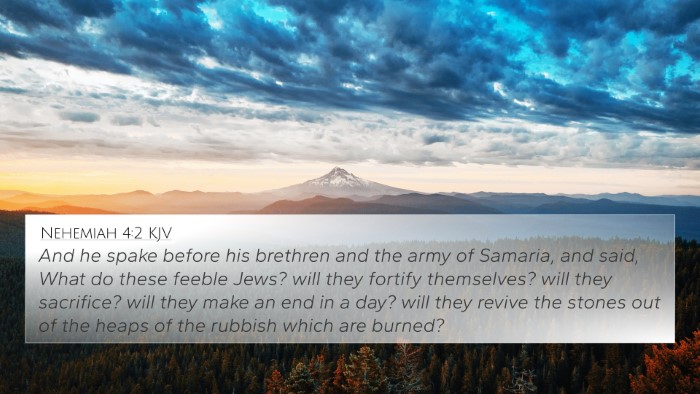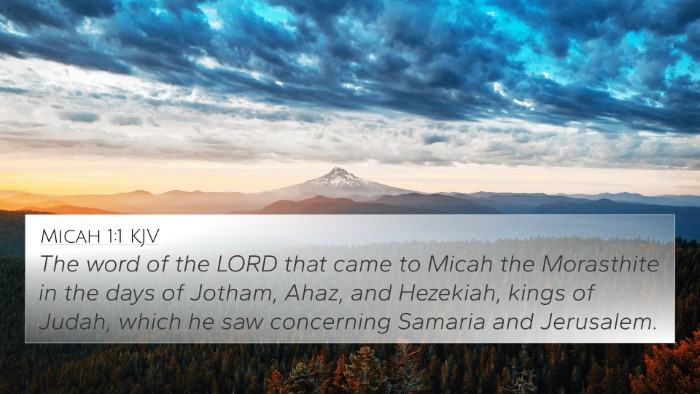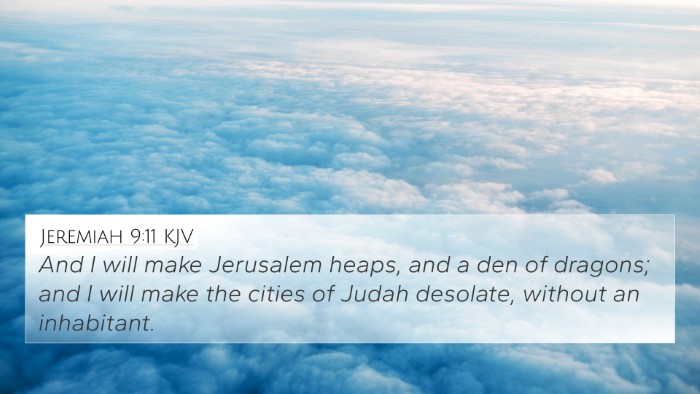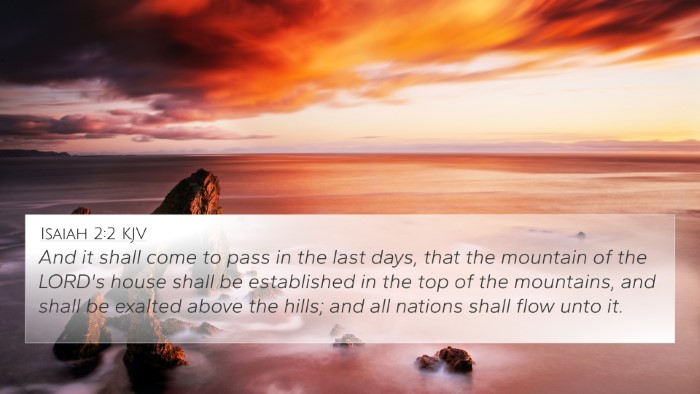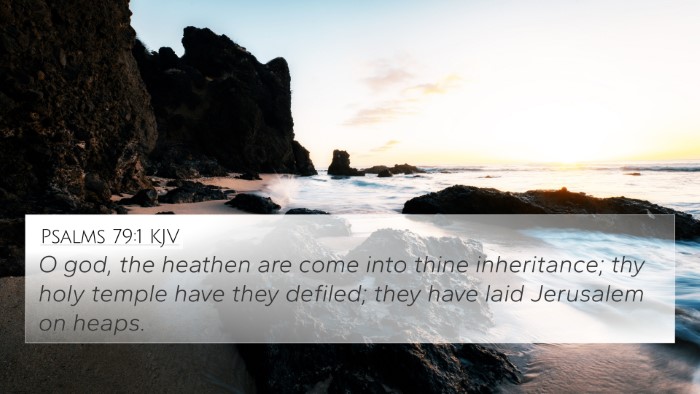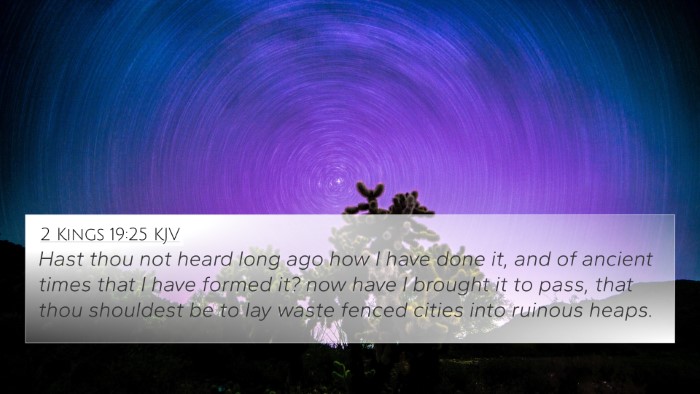Understanding Jeremiah 26:18
Verse Reference: Jeremiah 26:18 (KJV): "Micah the Morasthite prophesied in the days of Hezekiah king of Judah, and spake to all the people of Judah, saying, Thus saith the Lord of hosts; Zion shall be plowed like a field, and Jerusalem shall become heaps, and the mountain of the house as the high places of a forest."
Summary of the Verse
This verse highlights the prophetic message delivered by Micah during the reign of King Hezekiah. It serves as a reminder of God's impending judgment and the consequences of straying from His commands. Through Micah’s prophecy, we see a vivid image of Jerusalem's destruction, which functions as a foreshadowing of the coming events that Jeremiah also addresses.
Commentary Insights
Matthew Henry's Commentary
Henry emphasizes the historical significance of Micah's prophecy, reflecting on how Micah boldly proclaimed God's message to the people of Judah. He notes that Micah's words were meant to call Israel towards repentance and to acknowledge the gravity of their situation. Henry draws connections between Micah's prophecy and God's overarching plan for His people, stating that genuine repentance and humility were essential for their salvation.
Albert Barnes' Notes
Barnes highlights that the mention of Micah reinforces the enduring voice of God communicated through His prophets across generations. He points out that Micah foretold the desolation of Jerusalem as a divine warning, reflecting God's displeasure with idolatry and injustice. Barnes connects this with similar themes in the prophetic books, emphasizing the need for the people to heed such warnings or face the consequences of their rebellion against God.
Adam Clarke's Commentary
Clarke focuses on Micah's message about Zion being plowed as a field, which serves as a metaphor for utter destruction. He explains that Micah’s prophecy is potent and acts as a historical precedent for Jeremiah’s message. Clarke insists that this prophecy is pivotal in understanding God’s patience with His people, balanced by His justice when that patience runs thin. Clarke's analysis encourages readers to grasp the profound implications of prophetic words both in context and as a precursor to their own spiritual narratives.
Thematic Connections
This verse and its accompanying commentaries reveal several thematic connections that help in deeper understanding:
- Prophetic Tradition: Micah's role as a prophet underscores the importance of prophetic voices."
- Judgment and Repentance: The call for repentance is a recurring theme in both Micah and Jeremiah’s messages."
- Role of Historical Context: The verse emphasizes the significance of understanding prophetic messages in their historical context for accurate interpretation."
- Spiritual Consequences: As stated by Clark, the metaphor of Jerusalem's destruction serves as a reminder of spiritual desolation that occurs when one turns away from God."
- Covenantal Faithfulness: The idea that God’s warnings are rooted in covenantal love reflects the all-too-human tendency to stray from divine paths."
Cross-Referencing Related Bible Verses
In exploring the connections in Scripture, we find several verses that relate to Jeremiah 26:18:
- Micah 3:12: Refers to the destruction of Zion, echoing the themes of judgment."
- Jeremiah 7:34: Speaks on cessation of joy and festivities in Judah as a sign of coming judgment."
- Lamentations 1:4: Further exemplifies the desolation of Jerusalem in the context of divine judgment."
- Isaiah 5:5: Uses vineyard imagery to depict God’s removal of His protection due to Israel’s sin."
- 2 Kings 18:3-6: Highlights Hezekiah’s reforms that align with Micah's righteous calls."
- Hosea 4:6: Discusses the destruction due to lack of knowledge and rebellion against God, mirroring Micah’s message."
- Amos 2:6-7: Offers a parallel prophetic message concerning the sins of Israel and their consequences."
- Ezekiel 18:30: Calls for repentance, reinforcing the message that turning back can avert judgment."
- Matthew 24:1-2: Jesus references the destruction of the temple, paralleling the prophetic visions of desolation."
- Luke 19:41-44: Jesus weeps over Jerusalem, recognizing the city’s failure to recognize the time of God’s visitation, reminiscent of Micah's warnings."
Conclusion
In summary, Jeremiah 26:18 serves as a crucial reminder of God’s persistent call to His people through His prophets. The interconnectedness of Biblical texts highlights the themes of judgment, repentance, and the enduring nature of God's message. Understanding this verse not only enriches one's study of the Old Testament but also deepens the appreciation for the continuity and relevance of God's word across both Testaments. Studying related verses and understanding their prophetic contexts can illuminate the path of faith for contemporary believers.
Tools for Bible Cross-Referencing
For those interested in expanding their understanding through cross-referencing, numerous resources are available for deeper study. Using a Bible concordance and the Bible cross-reference guide can provide extensive insights into comparative analysis of scripture. Engaging in cross-reference Bible study methods can enhance personal and community Bible study experiences, fostering a richer understanding of scripture connections.
Final Thoughts
To truly grasp the significance of Jeremiah 26:18 and its intricate ties to the broader narrative of salvation history, it's vital to explore tools and methods for cross-referencing Biblical texts. Whether through individual study or group discussions, placing scripture side by side invites deeper reflection, greater understanding, and a more profound relationship with the divine.
